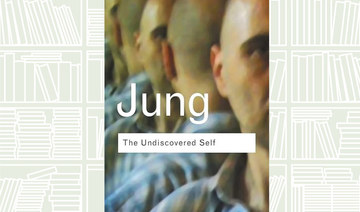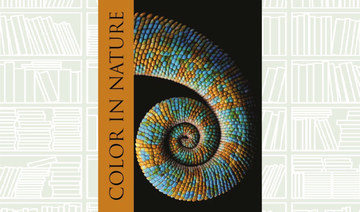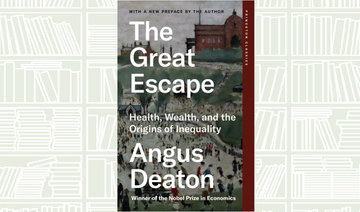BEIRUT: Hans-Lukas Kieser’s interest in Turkey began in the 1980s when he studied history in Zurich. On Sept. 12, 1980, Turkey experienced its third coup, but “nobody could explain to me the whole background,” Kieser said. At the end of the 1980s, he finally decided to specialize in the history of the Near East. Sensing a lack of intellectual material, Kieser started to write the books he had always wanted to read.
Despite his preference for what he refers to as the periphery, ie regional minorities such as the Kurds, Alevis and Armenians, he believed he had a duty to explore the center.
He has published many books, including “World War I and the End of the Ottomans: From the Balkan Wars to the American Genocide.” However, this brilliant portrait of Talaat Pasha is in a league of its own.
For a start, it is the first biography available in English about this Ottoman politician largely unheard of outside Turkey.
Also known as the Turkish Bismarck, Talaat Pasha (1874-1921) was the last powerful leader of the Ottoman Empire. As the eminence grise behind the Armenian genocide, he viewed the Armenians who pursued their dream of freedom as “a perpetual element of subversion for the Sublime State,” and thus they lost their right to exist.
This detailed, well-researched account of his life re-establishes Talaat Pasha as a key figure during the first decades of the 20th century. A self-made man who came from a lower middle-class family in Edirne, Talaat Pasha not only became the first figure of the Ottoman Empire but is also the father of modern Turkey.
In this groundbreaking biography, Kieser acknowledges that “Kemal Ataturk largely endorsed Talaat as his predecessor” and reiterates that “the Republic of Turkey was largely founded on Talaat’s groundwork and Gokalp’s ideas.”
Writing from the perspective of Istanbul, the author has taken a novel approach to the last Ottoman decade, thus placing this historic period and its actors “more firmly in the center, instead of the periphery, of a history of larger Europe.”
Biography sheds light on Talaat Pasha, the father of modern Turkey
Biography sheds light on Talaat Pasha, the father of modern Turkey

What We Are Reading Today: Florapedia

Author: Carol Gracie
“Florapedia” is an eclectic A–Z compendium of botanical lore.
With more than 100 enticing entries—on topics ranging from achlorophyllous plants that use a fungus as an intermediary to obtain nutrients from other plants to zygomorphic flowers that admit only the most select pollinators—this collection is a captivating journey into the realm of botany.
Book Review: The Elephant in the Brain

Published in 2017, “The Elephant in the Brain” is an insightful book that takes readers on a journey into the hidden motives that shape human behavior and influence decision-making.
Writer and software engineer Kevin Simler and professor of economics Robin Hanson take a deep dive into the subconscious factors behind people’s choices in life and what drives them to act a certain way.
The book explores the idea that many human behaviors are influenced by hidden motives, evolutionary drives, social signals, and other unconscious aspects that the conscious mind fails to recognize.
Through various examples and case studies, the authors address the elephant in the room — the unspoken and unflattering secrets behind everything, from career choices and charitable contributions to laughter and attraction. They invite readers to question personal motives, choices, and biases and reflect on themselves.
One of the book’s strengths is its interdisciplinary approach, which gathers insights from several fields, including psychology, biology, and economics, to draw a more comprehensive picture for the reader.
However, “The Elephant in the Brain” might be a challenging read as it explores ideas regarding the nature of human behavior that some readers might find uncomfortable.
Yet, the authors skillfully maintain an objective, non-judgmental tone throughout, encouraging readers to approach the topic with a mindset of self-reflection and intellectual curiosity.
“The Elephant in the Brain” is well-researched and a great choice for people interested in understanding the hidden drivers behind human decision-making.
What We Are Reading Today: Civilization in Transition

Author: C. G. Jung
‘The “Civilization in Transition” features Jung’s writings on contemporary events, especially the relation between the individual and society.
In the earliest essay, “The Role of the Unconscious” (1918), Jung advanced the theory that World War I was a psychological crisis originating in the collective unconscious of individuals.
Book Review: ‘Outlive’
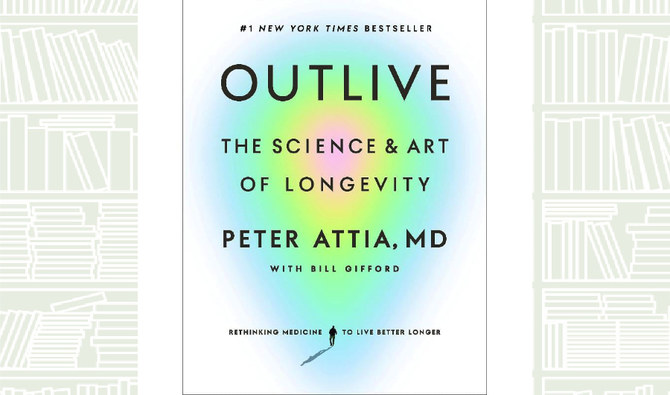
In “Outlive: The Science and Art of Longevity,” Dr. Peter Attia (with Bill Gifford), a renowned physician and longevity expert, flips the script on aging.
He argues for a proactive approach that involves taking control of one’s health to prevent chronic diseases before they happen.
Attia ditches the one-size-fits-all mentality and instead focuses on four key pillars: diet, exercise, sleep, and stress management. He dives into the science behind each, explaining how they impact cellular health and ultimately, lifespan.
“Outlive” does not promise you a fad diet or a magic pill. Attia emphasizes personalized strategies and encourages tracking key health markers like blood sugar and blood pressure to understand the body's unique needs.
But it is not all biohacking. Attia acknowledges the mind-body connection, highlighting the importance of sleep and good relationships for a long, fulfilling life.
Moreover, the book explores the intricate science behind longevity and delves into the various factors that contribute to living a longer, healthier life.
The book provides readers with actionable strategies to optimize their healthspan, allowing them to not only extend their years but also improve their quality of life as they age.
Like an owner’s manual for health, “Outlive” empowers the reader to take charge, optimize their health, and not just live longer, but live a life that feels truly alive.
What We Are Reading Today: ‘The Career Arts
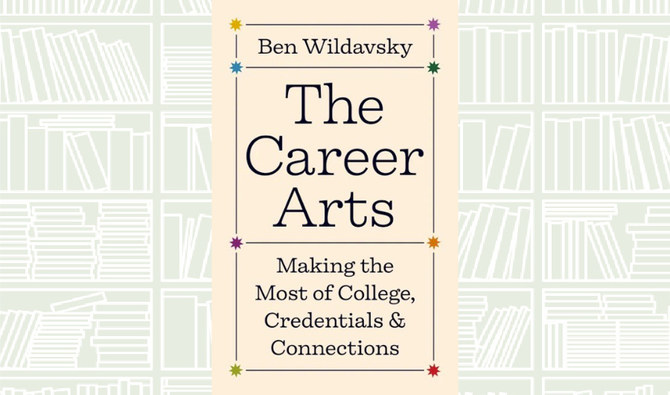
Author: Ben Wildavasky
Young people coming out of high school today can expect to hold many jobs over the course of their lives, which is why they need a range of essential skills.
“The Career Arts” provides a corrective to the widespread and misleading notion that there is a direct trade-off between going to college and acquiring practical job skills.






